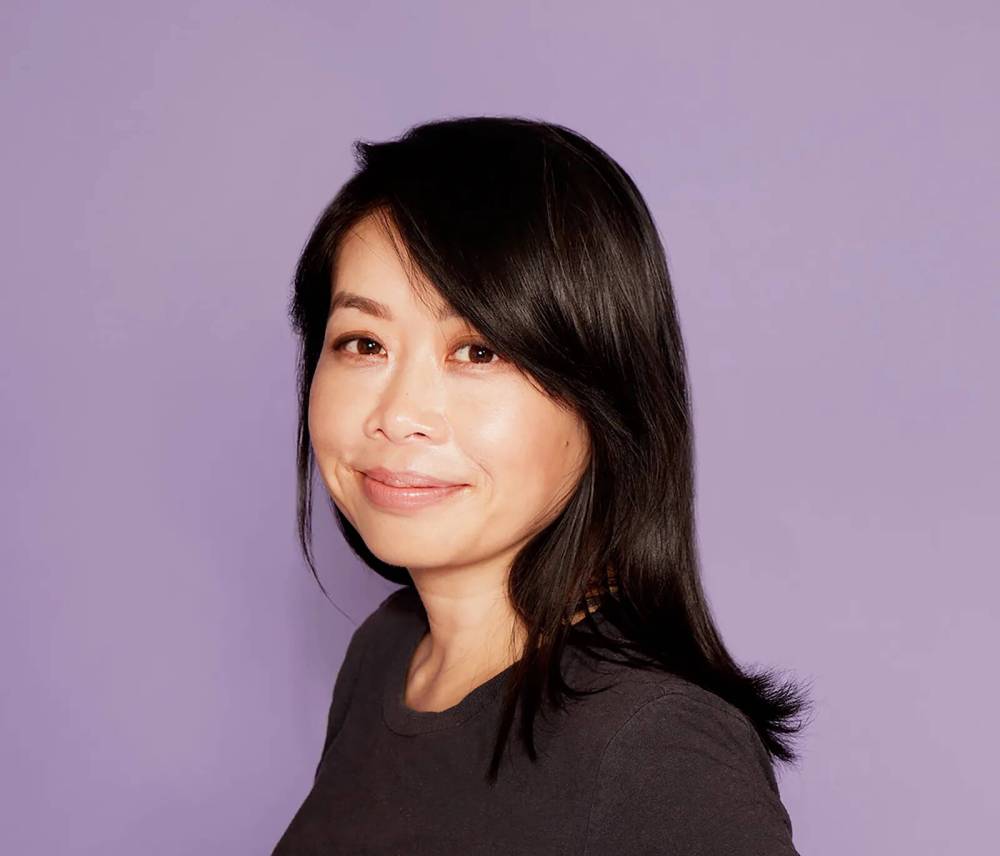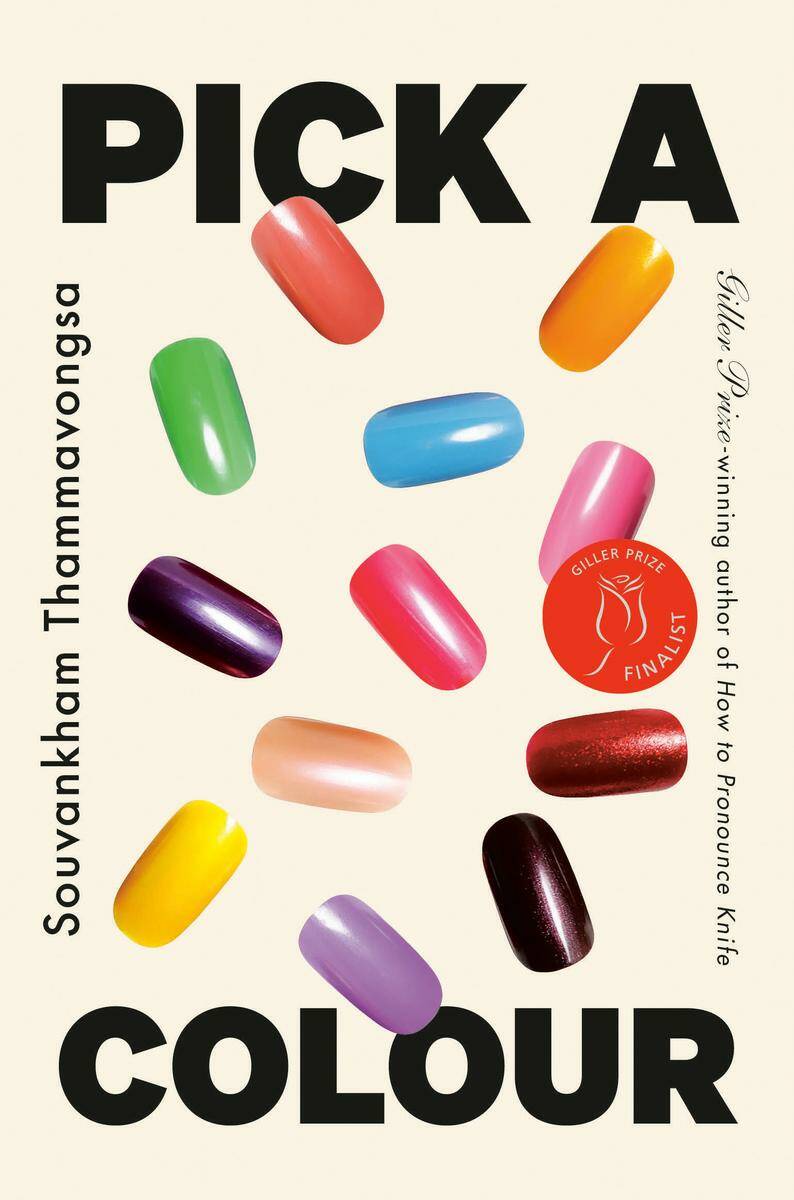Working woman
Nail salon owner offers keen observations of human behaviour in Thammavongsa’s debut novel
Advertisement
Read this article for free:
or
Already have an account? Log in here »
To continue reading, please subscribe:
Monthly Digital Subscription
$0 for the first 4 weeks*
- Enjoy unlimited reading on winnipegfreepress.com
- Read the E-Edition, our digital replica newspaper
- Access News Break, our award-winning app
- Play interactive puzzles
*No charge for 4 weeks then price increases to the regular rate of $19.00 plus GST every four weeks. Offer available to new and qualified returning subscribers only. Cancel any time.
Monthly Digital Subscription
$4.75/week*
- Enjoy unlimited reading on winnipegfreepress.com
- Read the E-Edition, our digital replica newspaper
- Access News Break, our award-winning app
- Play interactive puzzles
*Billed as $19 plus GST every four weeks. Cancel any time.
To continue reading, please subscribe:
Add Free Press access to your Brandon Sun subscription for only an additional
$1 for the first 4 weeks*
*Your next subscription payment will increase by $1.00 and you will be charged $16.99 plus GST for four weeks. After four weeks, your payment will increase to $23.99 plus GST every four weeks.
Read unlimited articles for free today:
or
Already have an account? Log in here »
Souvankhan Thammavongsa won the 2020 Giller Prize and 2021 Trillium Book Award for her debut short-story collection, How to Pronounce Knife, which was preceded by four collections of poetry. Her debut novel, Pick a Colour, has also landed on the shortlist for the 2025 Giller Prize, which will be awarded Nov. 17.
Pick A Colour is a slim novel that takes place over the course of a single day in a single location — a nail and beauty salon in an unnamed city. It is told from the first-person perspective of a single person, Ning, the salon’s owner. Interestingly, though the back cover blurb suggests that Ning is an immigrant, this is never explicitly stated in the novel or in the author’s introduction. We’re not told where Ning was born or where her family is from; she is proficient in both English and another unnamed language.
Every woman who works in the salon has a nametag identifying them as Susan. The clients don’t notice, and when they call and ask to book an appointment with Susan, she’s always available.

Steph Martyniuk photo
Souvankham Thammavongsa cleverly breaks a cardinal rule of the novel in her full-length debut — rather than having the main character change, it’s the expectations of readers that are altered.
This business decision defines Ning: she is practical and unsentimental, able to turn other peoples’ misconceptions and stereotypes into a benefit. She can also be autocratic: her staff must look the same, and when one employee arrives with her hair two inches longer than everyone else’s, Ning grabs scissors and cuts it.
Ning is uncoupled and has no children, and she likes it that way. However, in another demonstration of her shrewdness, she builds rapport with clients by telling stories about her fake boyfriend. We’re not told much about her prior history, but we do know that she used to be a professional boxer, that she is missing a finger and that she used to work at a more upscale salon for a woman who was abusive to her staff.
Ning is a keen observer of human behaviour, and Thammavongsa expertly shows the reader the vast gap between Ning’s outward actions and her inner thoughts. Ning presents as attentive to clients, but is often contemptuous and judgmental of them, in keeping with the novel’s opening sentence that “Everyone is ugly.” Later on, she says “most people are not all that interesting. They’re the same to me. Hands and toes, toes and hands. A lot of them say and think the same things. Predictable. And I have to behave like I never heard it before.”
She instructs staff to ask clients to “pick a colour” not once but twice, because “they don’t hear the first one.”
Nevertheless, Ning betrays herself with countless moments of restraint and even compassion. The strength of this novel is in what is left unsaid. The story offers a series of small interactions throughout the day where not everything is explained or resolved.
The language is simple and unpretentious, and this gives it power. When a bridal party visits the salon, Ning glances over at the bride, and sees “the face of someone who is thinking of the future, the rest of their life. I see the shape of her eyes change. They look larger, but they are not. It’s tears. When that happens you don’t ask someone what’s wrong, unless they say.”

Pick A Colour
Though the Susans are working and literally kneeling at clients’ feet, they’re not submissive, frequently gossiping about clients in their own language. It’s a brilliant act of literary subversion. Thammavongsa plays to some readers’ fears that their beauticians are mocking them, but in fact, the Susans are entertaining themselves and adding humour to the monotony of their work.
When one client shows Ning a picture of her boyfriend, Ning says, “I smile at it to be polite. And say to the girls, ‘The guy’s hair is thinning.’ Mai is the first to answer, ‘But is his money thinning?’” It’s less of a joke at the client’s expense and more of a commentary on the emptiness of male-female relationships and of social interaction in general.
The novel is filled with other subtle but astute observations of race, class and gender. The wealthiest clients are the stingiest. Happy clients don’t leave reviews. Male clients take liberties with an employee who would rather receive such overtures from a woman.
It’s refreshing to read a novel about a woman at work, whose life revolves around the business she has built from nothing; a primarily female space, though there are occasional intrusions by men. Over the course of the day, Ning has moments of loneliness and sadness, which are alleviated in the final moving scene of the novel.
Here Thammavongsa cleverly breaks a cardinal rule of the novel: rather than have her main character change, it is the reader’s expectations that are altered. We’re not given the anticipated answer to why Ning is missing a finger, but we don’t need it, because we know her completely, the way she knows herself. Through Ning’s gaze, we also see ourselves as we might appear to those who provide us with services.

PEXELS.COM
Painting finger nails.
Ning insists on being defined not by her race, class or gender, but by the work she does. In this remarkable novel, Thammavongsa asserts Ning’s humanity by reminding us of ours.
Zilla Jones is a Winnipeg-based writer of short and long fiction. Her debut novel The World So Wide was published in April.


